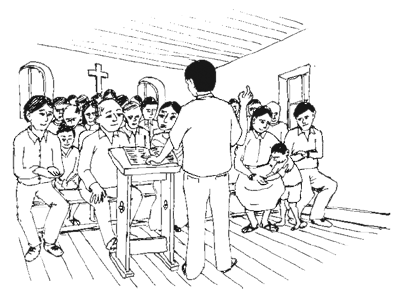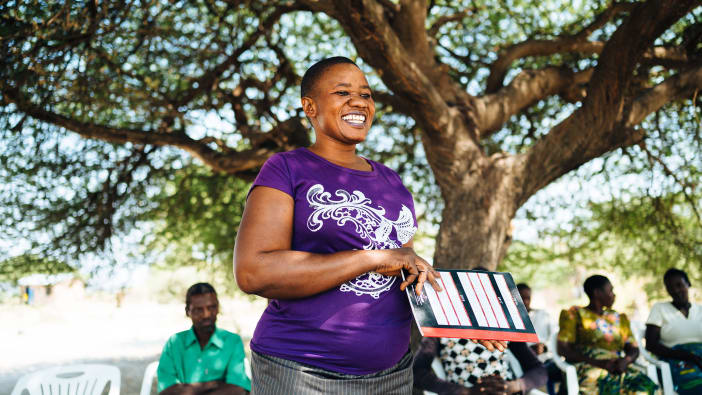God sent his son Jesus to establish justice in the world. Churches need to share Jesus’ concern for the poor and the oppressed. The Bible makes it clear that as Christians we should share God’s passion for justice. This does not just mean that we should live good lives as individuals. We should also try to correct what is wrong in our society, bringing about righteousness.
Church leaders can speak out with considerable authority about many situations. They can challenge unjust laws and promote and defend the rights of poor people. Through their example and leadership they can inspire, direct and encourage their churches to take action to promote justice. This may be through prayer, through giving, through practical caring, through speaking out and through different approaches to advocacy work on behalf of those who are suffering. Usually it will be a combination of all of these.
God wants righteousness to flow from his church, just like the water in a fast- flowing river. The Church should provide leadership and inspiration for a wide range of social actions that aim to bring justice into our hurting world.
Discussion
- Read Amos 5:1-24. We read in the book of Amos about the injustice of that time. Poor people’s rights were not respected (verse 11), bribery was common (verse 12) and those who fought for justice and truth were despised (verse 10).
- What do verses 7, 10, 11 and 12 say about the way the people behaved towards their neighbours?
- What does God condemn in verse 21? What did it mean for an Israelite of that time to carry out religious festivals? Are there similar situations today in the way we practise our faith?
- What does the prophet suggest will be a true and acceptable action towards God in place of these ‘religious festivals’ in verse 24?
- Does our worship lack concern for those who suffer or are treated unfairly? Christians frequently think that such problems have nothing to do with their faith. How could we answer them?
- How can we include our concern for social justice in the heart of our worship?
- Challenging injustice requires considerable courage and persistence. What strengths does the church have to equip it to take action?
- Read Micah 6:8. What does God ask of us? How effective are we in carrying out these three commands? Which do we find the most challenging? Let us make them our prayer for future direction.
Articles 3, 7, 8, 27, 29 UN Universal Declaration of Human Rights










